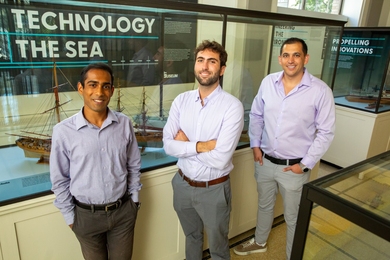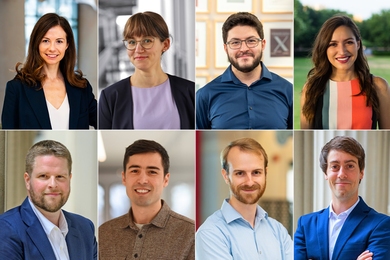Elisabeth Reynolds PhD ’10, who has consulted extensively with federal and non-profit organizations — including the Brookings Institution and the Massachusetts Technology Collaborative — has been appointed executive director of the Industrial Performance Center at MIT.
Reynolds comes to this position with a background in urban and regional economic development and industrial competitiveness. Her work focuses on the geography of innovation, urban and regional economic growth and industrial policy, in particular on the theory and practice of industrial cluster development.
Reynolds will work to develop the strategy and programs of the IPC with a faculty council chaired by Professor Richard K. Lester, founding director of the center and head of the Department of Nuclear Science and Engineering; and Michael Piore, David Skinner Professor of Political Economy in the departments of economics and political science.
The IPC, an Institute-wide research unit based in the School of Engineering, is dedicated to the study of innovation, productivity and competitiveness. The center carries out field-based, often large-scale research projects that bring together scientists and engineers with scholars from the social sciences and management disciplines. Through its research the center seeks to help leaders in business, government, labor and education better understand global industrial developments and to work with them to develop practical new approaches for strengthening public policies, business strategies and educational programs having to do with the transformation of industries.
More about Elisabeth Reynolds
Reynolds comes to this position with a background in urban and regional economic development and industrial competitiveness. Her work focuses on the geography of innovation, urban and regional economic growth and industrial policy, in particular on the theory and practice of industrial cluster development.
Reynolds will work to develop the strategy and programs of the IPC with a faculty council chaired by Professor Richard K. Lester, founding director of the center and head of the Department of Nuclear Science and Engineering; and Michael Piore, David Skinner Professor of Political Economy in the departments of economics and political science.
The IPC, an Institute-wide research unit based in the School of Engineering, is dedicated to the study of innovation, productivity and competitiveness. The center carries out field-based, often large-scale research projects that bring together scientists and engineers with scholars from the social sciences and management disciplines. Through its research the center seeks to help leaders in business, government, labor and education better understand global industrial developments and to work with them to develop practical new approaches for strengthening public policies, business strategies and educational programs having to do with the transformation of industries.
More about Elisabeth Reynolds






